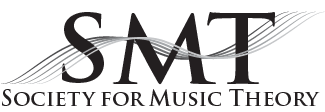Hello!
If you would like to participate in discussions, please sign in or register.
Categories
In this Discussion
- Carson Farley April 2017
Most Popular This Week
Teaching in Times of Crisis: Resources
Dear list,
As Chair of the Scholars for Social Responsibility Interest Group of the Society for Music Theory, I’ve been feeling an obligation to make a public statement on SMT-Discuss since the US election results were announced on November 8. Regardless of political views or nationality, this event has drawn reaction from people around the world. As I’m sure many of you can attest, academia has not been immune to such reactions.
In conversation with members of the Scholars for Social Responsibility IG on our email list, I have heard responses including:
- I’m not sure how to respond to this situation in my professional life
- I want to connect with others to share what’s going on where I am, and find out what others are doing
- I want to work with my students/colleagues/communities to create positive action
- I want to talk about how music theory and its teachings can perpetuate and reinforce political and social structures, and power dynamics
- I want to emphasize critical thinking skills in my classroom, along with musical skills
- I want to help preserve/promote the foundational art works and values of my society
- I wonder whether the SMT membership will be impacted in practical terms (members’ ability to travel to conferences, feel safe in particular venues)
- I want to talk about how politics might impact higher education
- I’m not sure how to support students from minority communities who have expressed feeling at risk
Members also shared non-partisan resources related to teaching in times of crisis (applicable to any number of regional, national, and global events), including:
Scholarship of Teaching and Learning resources on teaching in times of crisis:
https://cft.vanderbilt.edu/guides-sub-pages/crisis/
http://www.niu.edu/facdev/resources/crisis/teaching.shtml
Philip Bohlman. 1993. “Musicology as Political Act.” The Journal of Musicology 11/4 (Autumn): 411-436.
If you are feeling affinity with any of the above, I encourage you to join our mailing list. We are still growing our membership, and would welcome additional voices as we shape the aim of this interest group. Further, please be aware that this is a non-partisan list, open to all political views (including apolitical views); the US election is one of many topics related to social responsibility that this group might explore, depending on the interests of members. Finally, watch for a session at our 2017 meeting on “The Activist Scholar’s Toolkit”—I’m sure we’ll still have plenty to talk about by then.
best,
Robin Attas
Chair, Scholars for Social Responsibility Interest Group
SMT Discuss Manager: smtdiscuss@societymusictheory.org

Comments
Thank you for posting this Robin. I see there has been no response as I'm certain most are in shock. It seems we are all alarmed and on a daily basis for some strange aberration that has brought our country to this absurd point. Although not personally or professionally affected as of yet, it is hard to avoid the reality of this new world order before us. I would suggest finding a particular cause you feel passionate about and taking extra steps to engage and support that cause as collective efforts matter in the long run. For me, after a period of introspection and joining a local group working on progressive issues, I have decided to focus on environmental issues. Best of luck, Carson